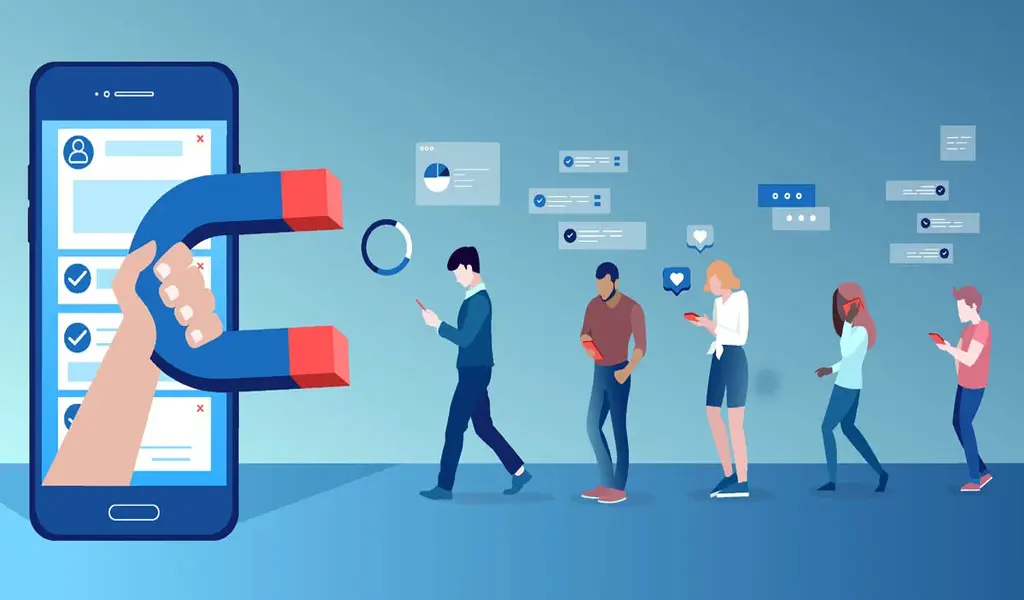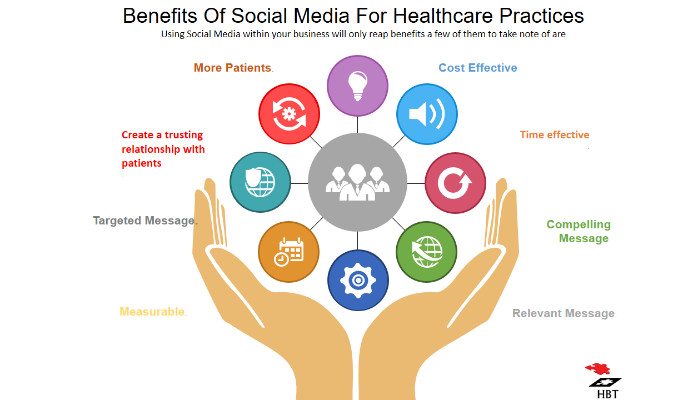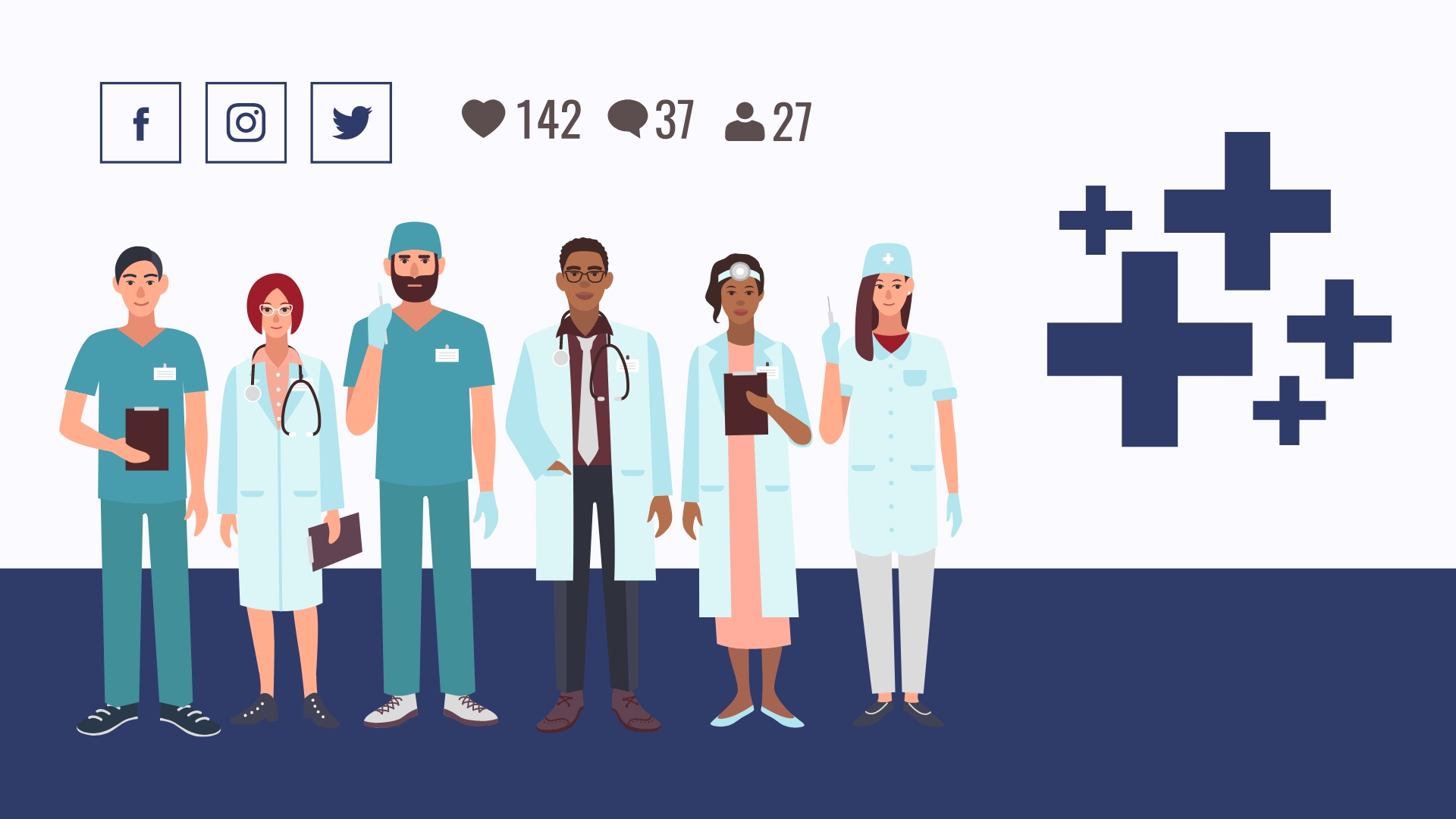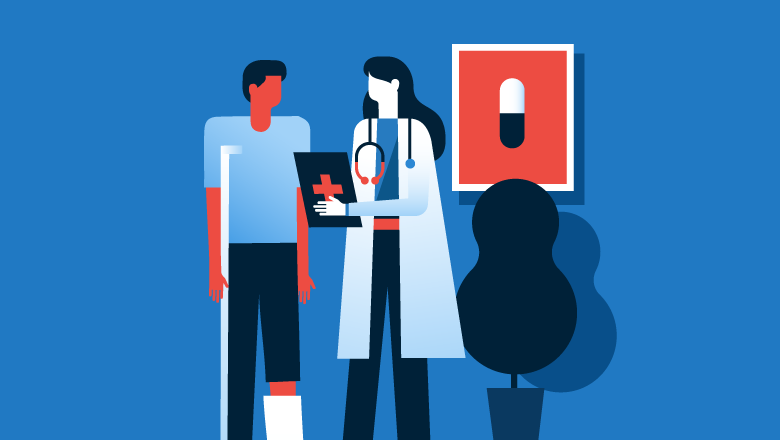Social Media
Social Media In Healthcare: The Benefits, Risks, And Best Practices

Social Media In Healthcare – As social media continues to dominate our personal and professional lives, healthcare organizations recognize the importance of establishing a strong online presence.
From sharing health information to engaging with patients and their families, social media has revolutionized the way healthcare providers connect with their communities.
However, with great power comes great responsibility, and it’s important for healthcare organizations to understand the benefits, risks, and best practices associated with social media use.
In this article, we’ll explore the impact of social media in healthcare, including its benefits, risks, and how to use it effectively.
Benefits of Social Media in Healthcare

Improved Patient Engagement
Social media platforms provide healthcare organizations with an excellent opportunity to engage with patients and their families.
With over 3.8 billion people using social media worldwide, healthcare providers can reach a broad audience and share real-time health information, educational resources, and news updates.
Social media can also facilitate patient communication, enabling patients to ask questions, share feedback, and connect with others who have similar health concerns.
Increased Brand Awareness and Credibility
Establishing a strong online presence can enhance a healthcare organization’s brand awareness and credibility.
Social media platforms allow healthcare providers to share their values, mission, and services while also highlighting their accomplishments, patient success stories, and community involvement.
By sharing this information on social media, healthcare providers can connect with their audience on a personal level and build trust.
Better Communication and Collaboration Among Healthcare Providers
Social media can also improve communication and collaboration among healthcare providers. Healthcare professionals can share research studies, medical news, and best practices with colleagues from around the world.
This can lead to more effective patient care, better medical outcomes, and improved patient safety.
Access to Real-Time Patient Data
Social media platforms can also provide healthcare providers with access to real-time patient data.
By monitoring social media posts and discussions, healthcare providers can identify health trends, monitor patient feedback, and gain insights into patient needs and preferences.
This information can inform clinical decision-making, improve patient outcomes, and enhance the patient experience.
Risks of Social Media in Healthcare

Privacy Concerns and Data Security
One of the biggest risks associated with social media use in healthcare is privacy concerns and data security. Healthcare providers must comply with strict regulations regarding patient privacy and data security.
Social media platforms can expose sensitive patient information, leaving healthcare providers vulnerable to data breaches, identity theft, and legal repercussions.
Regulatory Compliance
Another risk associated with social media use in healthcare is regulatory compliance. Healthcare providers must adhere to strict regulations and guidelines, such as HIPAA when sharing patient information on social media.
Failing to comply with these regulations can result in legal consequences and damage to the healthcare organization’s reputation.
Medical Misinformation
Social media can also perpetuate medical misinformation, which can have serious consequences for patients’ health and well-being.
Reputation Management
Another risk associated with social media use in healthcare is reputation management.
Negative feedback, reviews, or comments on social media can damage a healthcare organization’s reputation, which can have a long-lasting impact on patient trust and loyalty.
Healthcare Social Media Best Practices

To maximize the benefits of social media in healthcare and mitigate the associated risks, healthcare organizations should adopt best practices for social media use. Some of these best practices include:
Develop a Social Media Policy
Healthcare organizations should develop a social media policy that outlines guidelines for social media use, including who can post on behalf of the organization, what type of content can be shared, and how to respond to feedback or negative comments.
The policy should also address privacy concerns, data security, regulatory compliance, and reputation management.
Train Staff and Establish Clear Guidelines
Healthcare organizations should provide social media training to all staff members and establish clear guidelines for social media use.
Staff members should be educated on the organization’s social media policy and trained on how to post content, engage with patients and the community, and respond to feedback or negative comments.
Monitor and Respond to Feedback
Healthcare organizations should monitor social media channels regularly and promptly respond to feedback or negative comments.
By acknowledging patient concerns and addressing them publicly, healthcare providers can demonstrate their commitment to patient care and build trust with their audience.
Focus on Quality over Quantity
Healthcare organizations should focus on producing quality content that is relevant and valuable to their audience.
By providing valuable content, healthcare providers can establish themselves as a trusted source of information and build credibility with their audience.
Stay Up-to-Date on Regulations and Guidelines
Healthcare organizations should stay up-to-date on regulations and guidelines related to social media use in healthcare.
By staying informed, healthcare providers can ensure that they comply with regulations and guidelines and minimize their risks.
Conclusion

Social media has transformed how healthcare organizations connect with their patients and the community. You can use this healthcare marketing agency if you need help with your social media campaigns in the healthcare industry. We can really recommend them.
By adopting best practices for social media use and understanding the associated benefits and risks, healthcare providers can establish themselves as trusted sources of information and enhance the patient experience.
FAQs
- How can social media improve patient engagement in healthcare? Social media can improve patient engagement by providing patients with real-time health information, educational resources, and news updates. It can also facilitate patient communication, enabling patients to ask questions, share feedback, and connect with others who have similar health concerns.
- What are the risks associated with social media use in healthcare? The risks associated with social media use in healthcare include privacy concerns and data security, regulatory compliance, medical misinformation, and reputation management.
- How can healthcare organizations mitigate the risks associated with social media use? Healthcare organizations can mitigate the risks associated with social media use by developing a social media policy, training staff and establishing clear guidelines, monitoring and responding to feedback, focusing on quality over quantity, and staying up-to-date on regulations and guidelines.
- How can social media improve communication and collaboration among healthcare providers? Social media can improve communication and collaboration among healthcare providers by allowing them to share research studies, medical news, and best practices with colleagues from around the world. This can lead to more effective patient care, better medical outcomes, and improved patient safety.
- How can healthcare organizations establish credibility and build trust on social media? Healthcare organizations can establish credibility and build trust on social media by sharing their values, mission, and services while also highlighting their accomplishments, patient success stories, and community involvement. By providing valuable content and responding to feedback promptly, healthcare providers can demonstrate their commitment to patient care and build trust with their audience.
RELATED CTN NEWS:
Social Media Trends 2023: What To Expect And How To Adapt Your Strategy?





























